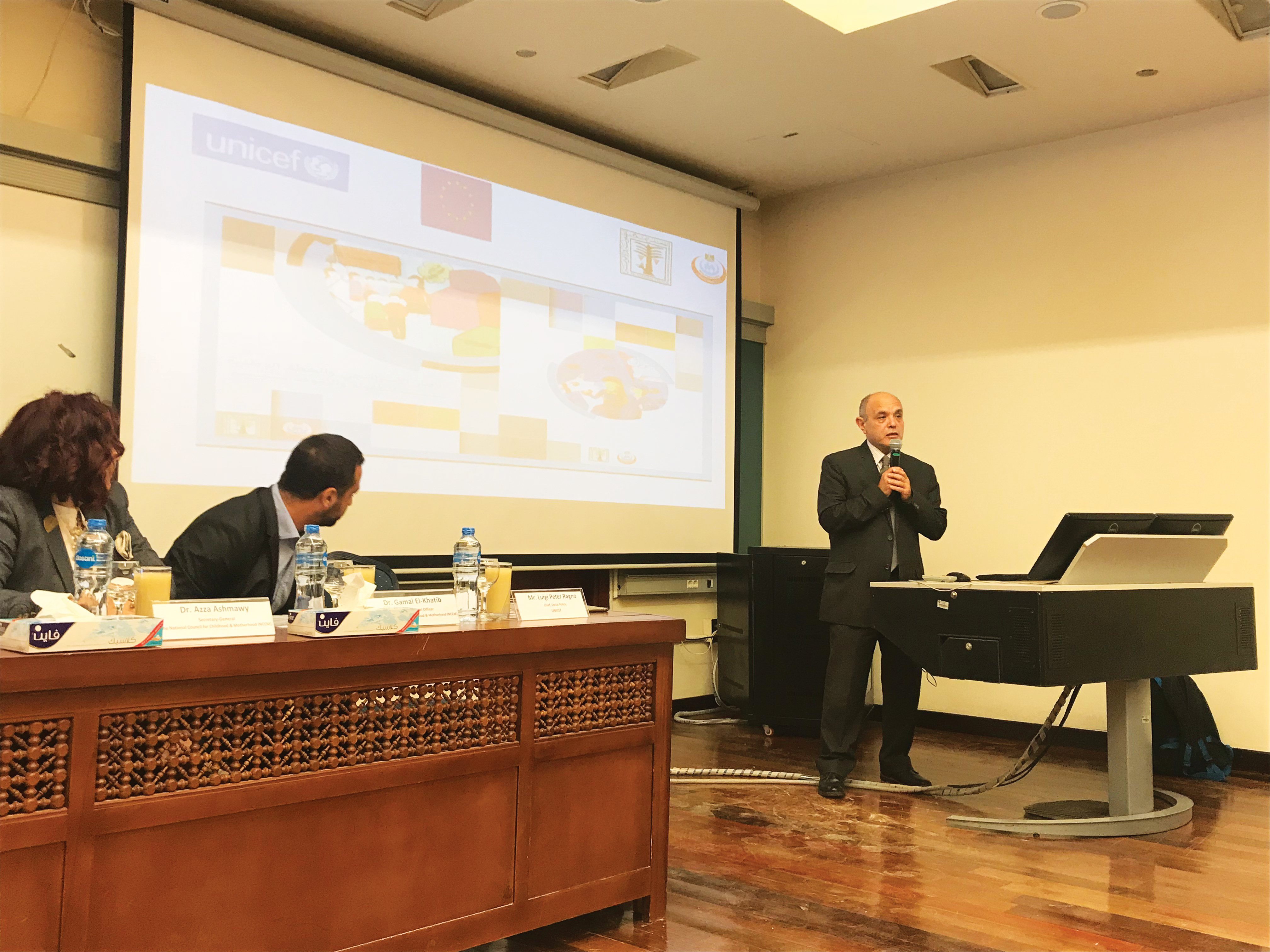In a seminar featuring their latest research paper, Ending Child Marriage,
the National Council for Childhood and Motherhood (NCCM) on October 28 discussed new policies that should be enforced by the government to curb child marriage in Egypt.
The NCCM awareness seminar was hosted by the Public Policy Hub, a platform designed for young policy-makers at the School of Global Affairs and Public Policy (GAPP), in collaboration with the United Nations Children’s Fund (UNICEF)
According to the 2017 Egypt Census, nearly one in every 20 girls between the age 15 and 17, is either currently married or was married before.
“Child marriage is more of a transactional marriage and it’s considered both prostitution and human trafficking,” said Laila El Baradei, professor of public administration at GAPP.
“It’s when parents, brokers and marriage registrars form a gang and marry off the young girls during the Summer season, for a pre-ordained short period of time, to wealthy elderly grooms, usually from the Gulf region,” El Baradei told The Caravan.
NCCM is preparing a behavior-change communication campaign in collaboration with UNICEF and other partners.
NCCM Secretary-General Azza Ashmawy says that Egypt is one of 125 countries in Africa that has a strategic plan for ending child marriage.
She illustrated that the NCCM’s research, in collaboration with UNICEF, is a vital step to propose strategies and national plans to reduce the phenomenon.
“The aim of this campaign is to work nationally to reach all the stakeholders, NGOs, and the whole community,” said Ashmawy.
Ashmawy explained that the majority of child marriage cases are among female children and it leads to a harmful loop of deprivation from future opportunities, especially education.
If they lose their education, they would inevitably also lose other opportunities. Hence, one of the steps taken to eradicate child marriage is investment in education.
This would be important for empowering girls and raising their awareness. For instance, building schools closer to their communities will reduce risks of sexual violence that girls may face on their way to school.
In rural areas, it is more prevalent to find female children getting married as opposed to children in urban areas. Ashmawy explained that NCCM seeks to eliminate the registration of child marriage and to strengthen local prevention through increasing reporting mechanisms.
“Child marriage continues due to cultural norms, and is exacerbated by the high poverty rates and high school dropout rates in several governorates in Egypt,” El Baradei told the Caravan.
There are three basic factors that contribute to child marriage; poverty, lack of education, and cultural beliefs.
“When a 13-year-old girl gets married, her family or husband do not allow her to continue going to school,” added Ashmawy.
However, criminalizing child marriage and legal enforcement on perpetrators would influence changing harmful cultural norms. Ashmawy explained that increasing the implementation of the 2008 child law -which entails that the minimum age of marriage for both females and males is 18- is also essential.
NCCM’s policies also entail a reporting mechanism through the child helpline (16000), and the family counseling line (16021), to provide support for children and their families.
“The essence of ending child marriage is communicating with the families in rural areas and raising their awareness about child violence, and that’s basically what NCCM is working on,” Gamal El Khatib, senior technical advisor of the NCCM, said.
Families that force their girls to get married at a young age often justify it as something that Islam imposed on them.
But Ashmawy refutes that child marriage is not part of Islam.
She added that former Egyptian Mufti Ali Gomaa issued a fatwa that child marriage is not a form of legal marriage and that it jeopardizes the life survival and security of the child.
El Baradei said that the first facet of child marriage in Egypt is that these families are content that this is an acceptable action, from a religious point of view.
“We shouldn’t rely much on religious leaders, as this (religion) is not the main reason behind child marriage and it’s only a fake justification,” said Amira Hussein, Regional Advocacy Coordinator for Gender at Care International in Egypt.
Negative consequences of child marriage do not only affect children’s well being, they affect the community as a whole.
El Khatib explained that divorce rates of child marriages are much higher than that of legal marriages.
Married adolescent girls are also at high risk of contracting disease, as they do not receive premarital examination (PME). The low awareness of diseases among youth makes young girls vulnerable to harmful practices.
